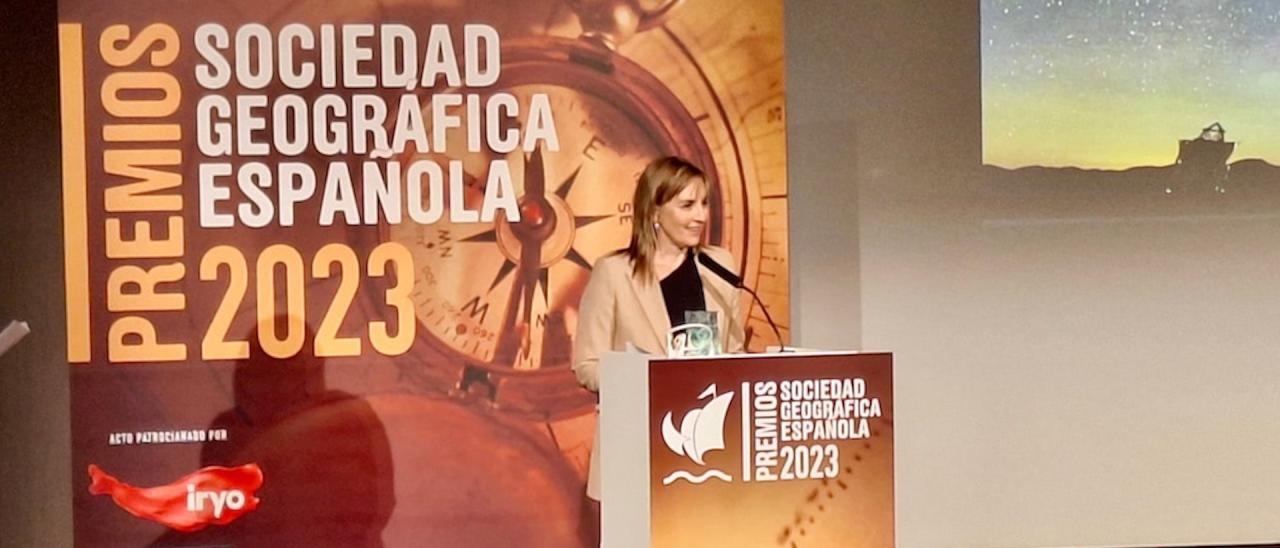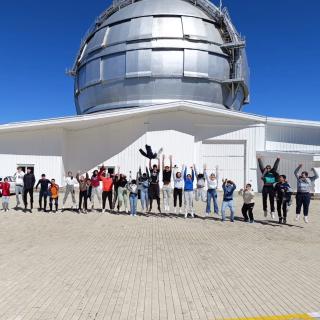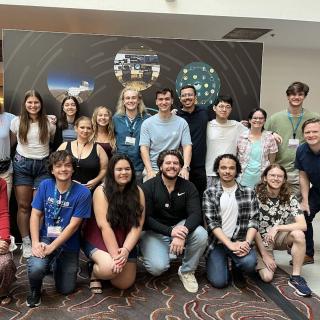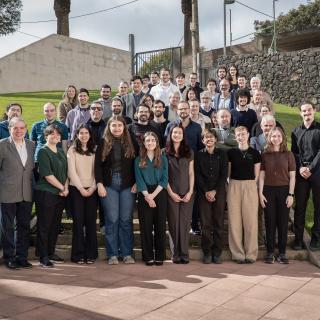On 25 April, Eva Villaver, research professor at the Instituto de Astrofísica de Canarias and also director of Space and Society at the Spanish Space Agency (AEE), received the Spanish Geographical Society (SGE) Research Award 2023 in Madrid. This institution, founded in 1997, has been awarding these prizes for almost a quarter of a century to the best initiatives and projects in the field of exploration, travel, adventure and scientific research.
Villaver began her scientific career at the Instituto de Astrofísica de Canarias (IAC) and her work was awarded the 2001-2002 prize for the best doctoral thesis in astronomy by the Spanish Society of Astronomy (SEA). In 2001 she joined NASA as a postdoc at the Space Telescope Science Institute (STScI) and in 2004 she was hired as a staff astronomer by the European Space Agency (ESA) in the Science Policy division of the STScI where she was responsible for the management of the "director's time" and the Hubble Space Telescope (HST) observing time allocation committees, among other responsibilities. She returned to Spain in 2009 as part of the Ramón y Cajal programme, joining the Universidad Autónoma de Madrid (UAM) as Profesor Contratado Doctor (PCD) where she combined her teaching with research and outreach. She was also the recipient of a prestigious European IRG Marie Curie Research Fellowship 2010-2014. Between 2021 and 2023 she held a permanent position as a research scientist at the Astrobiology Centre (INTA/CSIC).
After receiving the prize from the SGE, Villaver thanked the award and commented that "I think it is nice that the SGE gives a prize to research on objects such as the stars, which are the beacons that have guided humanity over the centuries, which have taught us to measure time and space, and which are the fundamental pillars of physics".
More information:




